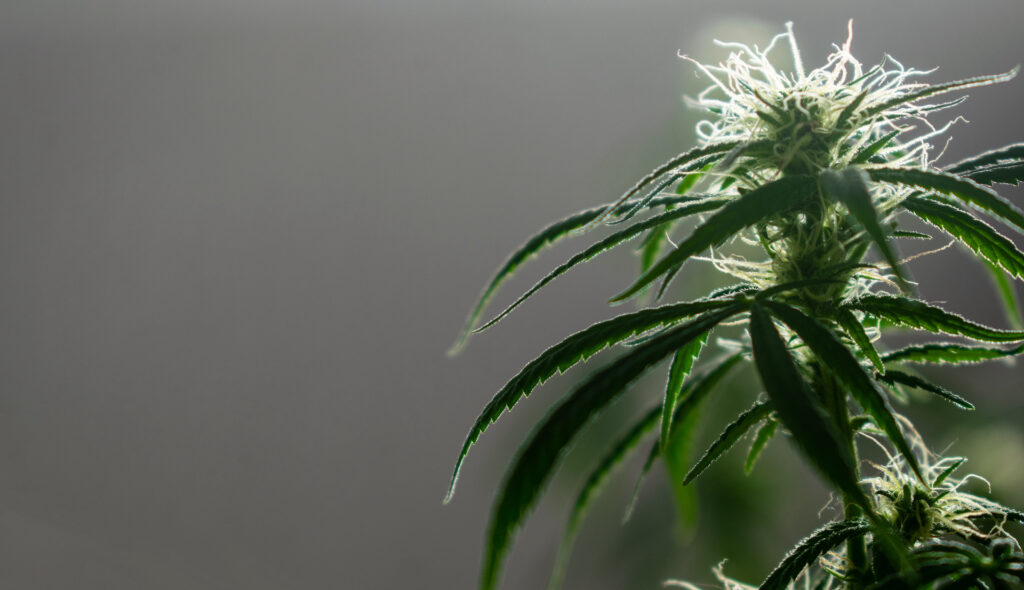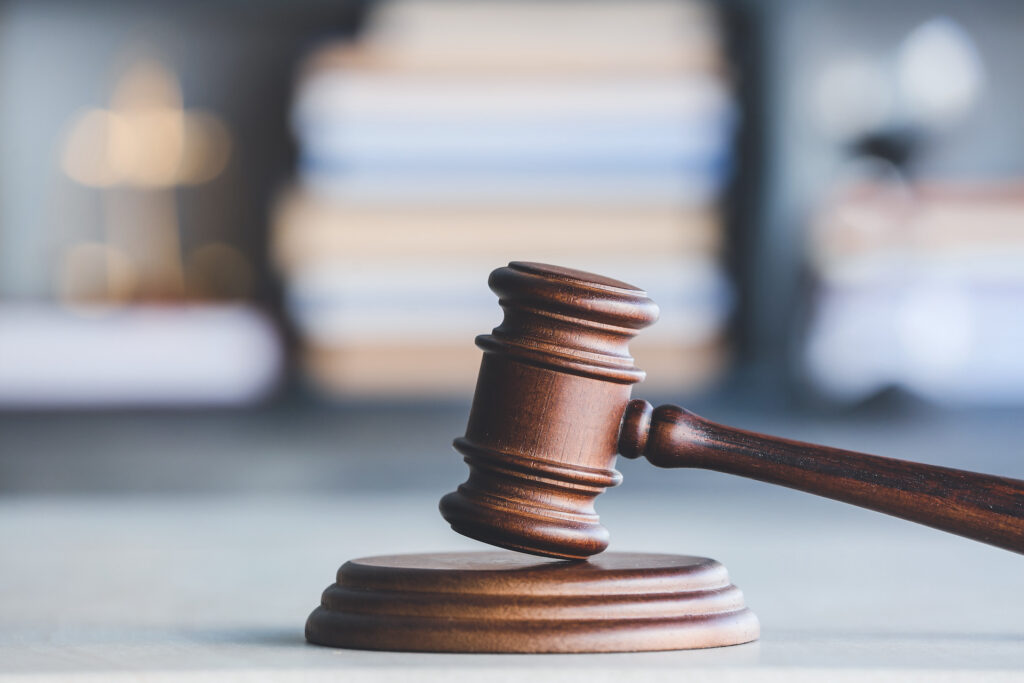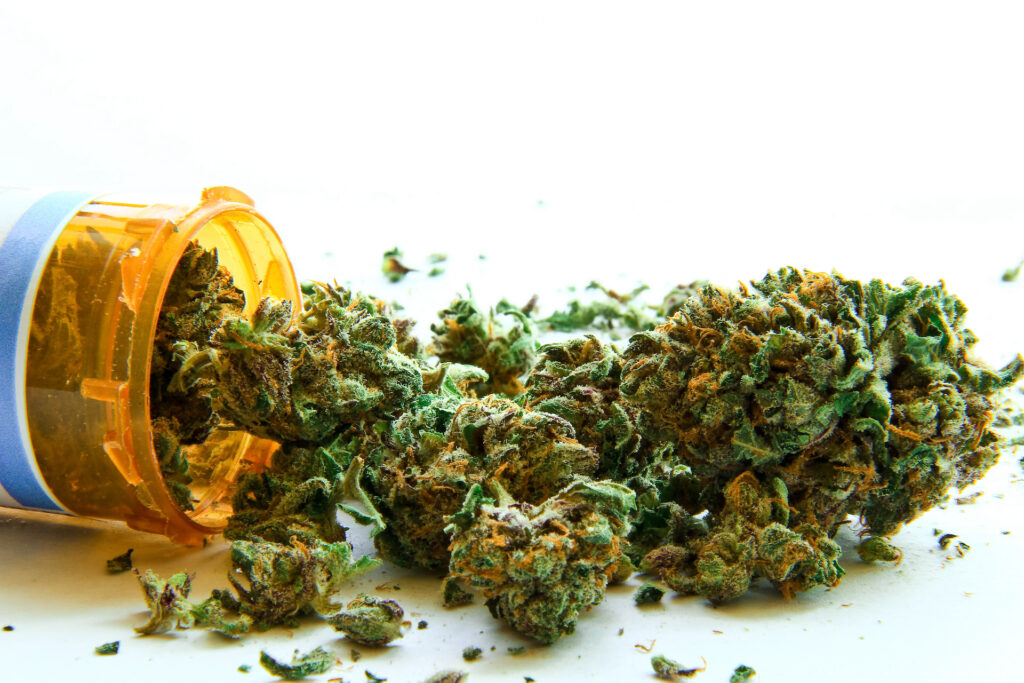
Why do medical cannabis and gun rights so often clash?
This article was written by Andrew Ward and originally published on Benzinga.
According to a 2021 Georgetown University firearms survey, around 33% of US adults say they own a gun. By the end of 2022, New Frontier Data expects 4.7 million Americans will be registered medical cannabis cardholders.
How these two figures influence each other remains uncertain. But with federal laws preventing individuals from legally possessing firearms while using Schedule I drugs, individuals using both could face legal trouble.
Like much of US cannabis law, state and federal regulations do not always align.
The ban on gun ownership for medical marijuana users stems from the Gun Control Act of 1968. The law is intended to regulate interstate and international trade in firearms and prevent certain individuals from legally participating in the market. Prohibited persons include any person who uses or is dependent on a Schedule I substance.
Under current law, if an individual admits to using medical cannabis on a background check form from the Bureau of Alcohol, Tobacco, Firearms, and Explosives, they will not be granted a gun license. If they lie, they face up to half a decade in prison and thousands of fines.
Karen O’Keefe, director of state policy for the Marijuana Policy Project (MPP), opposes the ban. She questioned why the status quo exists, citing alcohol as more of a public safety issue.
Related
Is weed or alcohol more addictive?
“There is no similar ban on alcohol users from owning firearms, even though more than a quarter of violent crimes are attributable to alcohol, while cannabis is rarely – if ever – associated with violence,” she said.
O’Keefe didn’t cite a specific study, but a 2016 University of Pennsylvania research paper analyzed 40 years of literature on gun violence between 1975 and 2014. The analysis concluded that over 33% of suicide and homicide victims in the US have acute had consumed amounts of alcohol prior to her fatal incident. The report added that study limitations make it difficult to provide guidance on the relationship between the two.
efforts to revise the law
Steps have been taken in recent years to revise the gun ban for medicinal cannabis. In 2020 in particular, the late US Representative Don Young promoted legislation to end the rule. The bill didn’t add up.
O’Keefe noted that the House-passed MORE Act could offer an end to the current rule through a rescheduled date. She said a MORE passage would “remove the incredibly harsh punishment for otherwise law-abiding Americans who own and possess guns.”
In April 2022, Florida Agriculture Commissioner Nikki Fried sued the Biden administration over a federal regulation that puts gun owners who use medicinal cannabis at risk of a five-year prison sentence.
Related
Medical marijuana gun rights lawsuit filed against Biden administration
In August, the Justice Department tried to dismiss the case, citing federal cannabis prohibition and the plant’s Schedule I status. The DOJ found that Congress did not recognize cannabis as having any medicinal uses and contended that gun-possessing cannabis users posed a danger to the public.
In a September response, plaintiffs alleged that the DOJ failed to establish why the case should be dismissed. That month, Fried called the DOJ’s response “insulting, illogical, and ahistorical.”
Nico Pento, attorney and senior policy adviser at Bianchi & Brandt, thinks the DOJ “proposes some solid legal arguments,” but said these points highlight where federal regulations are “outdated and wrong.”
Pento says the Justice Department’s reasoning opens the door to similar claims about people combining guns with alcohol, coffee or opioids. “While the DOJ’s position may not be unconstitutional, which is up to the Supreme Court to decide, it is morally wrong,” Pento said.
Operational Security Solutions (OSS) CEO Scott Solomon said he understands the desire for gun ownership and the DOJ’s perspective.
“While we support the right to own guns, we understand why there are still restrictions on where and when guns can be used,” he said, citing concern about cannabis’ potential to empower judgement and change response times.
Patients affected by the state
Federal regulations state that anyone who combines medicinal cannabis with gun ownership is breaking the law. But as with cannabis laws, several states are not complying with ongoing national policies.
Justin Bedford, a regulatory analyst at cannabis compliance firm Simplifya, believes DOJ rules restrict patient access and encourage people to acquire guns through illegal methods. Bedford works at the Colorado market and says he has heard concerns from numerous patients.
“I know people with medical cannabis ID cards who have told me they lied about their cannabis use on their federal ATF screening form when they bought a firearm for fear of a federal penalty,” he said.
OSS’ Solomon highlighted California’s recently passed occupational health and safety laws for cannabis users. However, the rule excludes certain occupations, including law enforcement, security personnel, commercial vehicle drivers, security personnel and others who are subject to federal drug testing.
Related
US military eases ban on recruits who test positive for THC
“Although our state has implemented some safeguards, it is clear that those employee groups who carry — and may use — firearms in the course of their duties cannot be active cannabis users,” Solomon said.
Pento called Arizona a “strong second amendment state” that allows cannabis patients to own guns. He would like to see the rules change due to the “dissuasive effect” on usage among certain groups. He reported seeing the effects among veterans.
“There are veterans who suffer from severe post-traumatic stress disorder who can be treated with medical cannabis but refuse because they don’t want to give up their Second Amendment rights,” Pento said.
Gasoline Opinion: Since gun and cannabis laws vary from state to state, users of both should exercise caution. If you want to comply with federal laws, choose one or the other—or at least understand how your home state views the laws.
To the petrol
Benzinga’s mission is to connect the world with news, data and education that make the path to financial prosperity easier for everyone every day.
Check out the articles from Benzinga
By submitting this form, you are subscribing to Leafly news and promotional emails and agreeing to Leafly’s Terms of Service and Privacy Policy. You can unsubscribe from Leafly email communications at any time.




Post a comment: